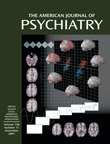Dr. Gabbard Replies
To the Editor: I thank Dr. Gossart and Dr. Lembke for their comments on my recent editorial. Dr. Gossart and I agree that Cartesian dualism is no longer useful in psychiatric discourse. Nevertheless, the decline and fall of Cartesian thinking does not mean that we should dispense with the domains of “mind” and “brain” in our language. The brain is a third-person phenomenon that can be directly observed and is therefore perception based. The mind involves the complexities of subjectivity, meaning, and consciousness and is a first-person phenomenon that can never be directly observed since it is introspection based. In Descartes’s model, the mind was an entity distinct from the body. It merely intersected the body at the pineal gland. My frame of reference in my editorial was quite different. Indeed, my whole argument was that because mind is the activity of the brain, the two are inextricably tied to one another. Even more important, both domains are relevant to the practice of psychiatry. If we do not keep both in our awareness, we are vulnerable to the perils of reductionism.
Dr. Lembke brings up an issue that is near and dear to my heart: namely, that we fragment the psychological and biological in our residency training programs by teaching psychotherapy and pharmacotherapy separately. Few residencies teach a systematic approach to integrated treatment, even though the majority of patients in psychiatric practice receive both medication and psychotherapy. We implicitly collude with the mind-brain fragmentation by the way in which we train our residents. It is a sad irony that the biopsychosocial model that is perhaps best typified by the integration of medication and psychotherapy is a dying conceptual framework in psychiatry. The residents who learn the art of combining the two modalities either learn by the seat of their pants or are fortunate to have a mentor who has evolved a thoughtful way in which to use both treatments and has conveyed this method in the context of clinical supervision.
Psychiatrists in the future should be educated so that our unique position as integrators of the biological and the psychosocial is operationalized in everyday practice.



